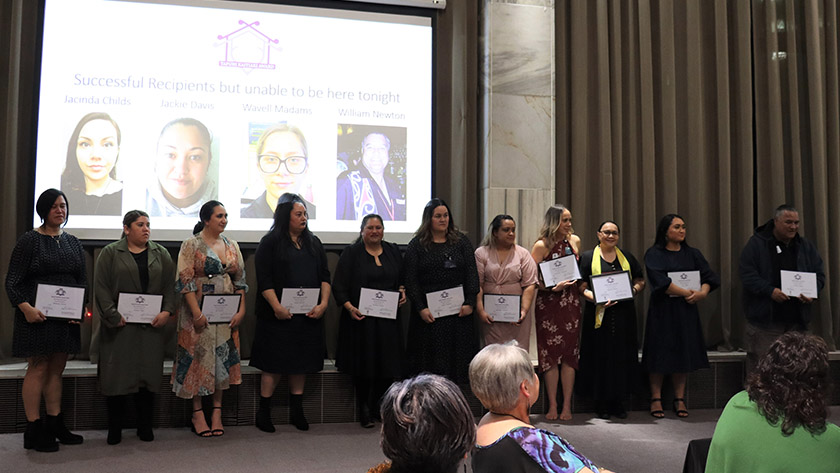There were 16 recipients of the Pharmac Tapuhi Kaitiaki awards, as well as a speech by nursing rangatira Marie Noa.
Noa won the 2020-2022 Akenehi Hei Memorial award – but was unable to collect it in person last year.
Pharmac director of engagement and implementation, Alison Hill said the awards symbolised the relationship with Te Rūnanga and emphasised the agency’s Te Tiriti role.
As an example of this increasing emphasis, Pharmac funded two new medicines for type 2 diabetes, empagliflozin, with and without metformin, and dulaglutide.
“So for the first time ever this year, Pharmac applied ethnicity as a criteria for special authority to help ensure that Māori and Pacific people… get access to those medicines.”
The system should support services by Māori, for Māori, in order to improve the health of whānau, hapū and iwi, Hill said. Māori nurses had a crucial role to play in achieving this.
The Tapuhi Kaitiaki awards are in two categories, each with a $10,000 pool. The nurse practitioner/nurse prescriber category supports Māori nurses to advance clinical practice and expertise. The Māori nurse mātauranga category supports nurses/tauira to further study and/or develop an innovative way to help whānau, hapū and iwi.
“We received some beautifully written and informative applications. Some of them were absolutely inspirational,” Hill said.
Recipients
Nurse practitioner/nurse prescriber award recipients: Tracy Black, Jacinda Childs, Racheal Smith.
Māori nurse mātauranga award recipients: Mahina Aiono, Jackie Davis, Kirsten Hepi, Eve Larkins, Wavell Madams, Serene Morrell, William Newtown, Pirihira Puata, Belinda Whare, Lucy Gotty, Kayla Rapana, Lucinda Solomon, Shannon Solomon.
What it means to receive an award – ‘my tipuna will guide me’
Three-time recipient Tracy Black shares her thoughts on why Māori nurses do what they do.
Each time I’ve received the email to say I have been successful, I’m shocked and tears of sadness and joy flow as I remember why I chose to push myself.
My “why” is to make a difference for my whānau who are dying from preventable illnesses such as heart disease, as my immediate whānau (father, brother, grandfathers and uncles) are noted in national mortality rates for cardiovascular disease.
I’m not naïve about the challenges I face daily (institutional racism, conscious and unconscious bias from non-Māori and Māori) and I have my eyes wide open about the struggles Māori whānau face, as I’ve grown up trying to navigate a health system that doesn’t work for my people.
As a Māori nurse, I’m available to my people 24 hours, seven days. They are why I trained: I don’t just work my FTE and that’s it.
“If called upon, you help”: that was instilled in me as a child. One of the things I have always said is: “My tipuna will guide me on my nursing journey”, so wherever my people need me I will go.
At this moment I’m working in the right place to help my people.
I know this is a foreign concept to non-Māori, but the whole reason I got into nursing was to help my whānau, hapū and iwi. Sometimes I do question if I have the knowledge and ability to become a nurse practitioner, then I work with patients, and I remember I can do this – and the need for me to continue.
The Pharmac scholarship is not just about funds to pay for course fees, travel and essential textbooks and nursing equipment; rather this will support an aspiration to be able to work in collaboration with my whānau, hapū and iwi.



